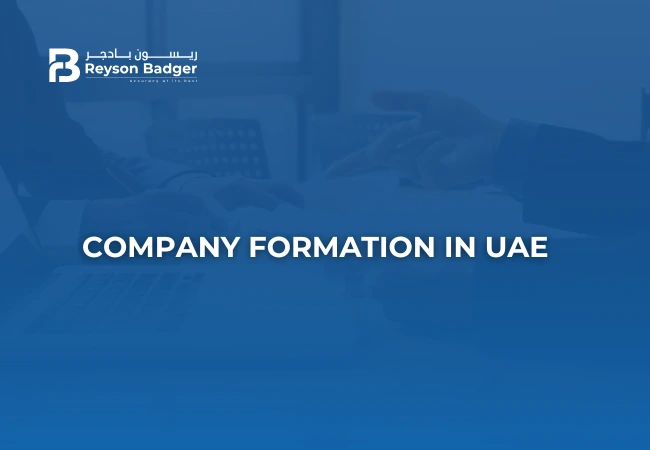
The United Arab Emirates (UAE) has evolved to emerge as one of the world's greatest business centers today. With a strategic location at the crossroads of Europe, Asia, and Africa, it offers the perfect blend of economic stability, cutting-edge infrastructure, and enterprise-friendly policies. Due to the cosmopolitan cities like Dubai and Abu Dhabi, the UAE now attracts foreign direct investments, trade, and tourism. In connection to these, it can be said that knowledge of business setup in UAE is a key factor for businesses to maximize opportunities, given the vast prospects available in the country.

The business environment of the UAE by all accounts has the following features:
However, Company Formation in UAE is an intricate process riddled with legal and regulatory requirements. Therefore, a comprehensive knowledge of the laws, regulations, and procedures in place concerning the setting up of companies within the UAE is viewed as being indispensable in terms of successful setup. This will help you to understand an overview of the process of company formation in UAE to guide entrepreneurs and businesses toward informed decisions and a solid base for success.
Here's an overview of the key differences between Free Zones, Mainland, and Offshore jurisdictions in the UAE:
Examples:
Examples:
Examples:
|
Criteria |
Mainland Business |
Free Zone Business |
|
Ownership Structure |
|
|
|
Taxation |
|
|
|
Business Activities |
|
|
|
Location |
|
|
|
Number of Employees |
|
|
|
Dealing with Local Entities |
|
|
|
Office Space |
|
|
|
Customs Duty |
|
|
|
Licensing and Regulations |
|
|
|
Bureaucracy |
|
|
|
Criteria |
Mainland |
Free Zone |
|
Ownership |
|
|
|
Tax |
|
|
|
Business Scope |
|
|
|
Regulations |
|
|
|
Location |
|
|
Business Structure
While setting up a business in the UAE, entrepreneurs can opt for registration of a company through one of the five structures: Sole Establishment, Limited Liability Company, Free Zone Company, Branch Office, or Representative Office. Each structure has its merits and demerits, and the form of structure chosen by an entrepreneur will also have an impact on the process of registration and regulatory requirements of a UAE company.
Registration Documents
The formal documents to officially register the company in the UAE are
These are to be duly notarized and accordingly attested by relevant authorities.
Regulatory Approvals
Before setting up a business, many UAE companies must have regulatory approvals from various departments. If the company falls in the healthcare or finance sectors, it requires other additional approvals. However, if it does not, it would still need to have a few more categories of approval, such as the Ministry of Economy, the Department of Economic Development (DED), and Free Zone Authorities.
Tax Registrations
In the UAE, there is a requirement for tax registration under Value Added Tax (VAT), Corporate Tax (if applicable), and Withholding Tax (if applicable). The Federal Tax Authority (FTA) administers the tax registration and compliance.
Business Licenses
There are some business licenses that firms in the UAE must obtain. These include trade licenses, commercial licenses, industrial licenses, professional licenses, and some specific licenses. DED or Free Zone Authorities issue these licenses.
Local Compliance Laws
Requirements here in the UAE involve companies having to fulfill the requisites of local law and regulations. For instance, these include adherence to the UAE Companies Law, Labour Law, Immigration Law, Tax Laws, Health and Safety Regulations, Environmental Regulations, and Data Protection Law.
Establishing a business in the UAE involves a straightforward and efficient process when following the right steps. Below is a guide to help entrepreneurs and investors navigate the company formation journey:
1. Book a Free Consultation with Reyson BadgerThe journey begins with a complimentary consultation with Reyson Badger's experienced business consultants. This session provides:
2. Choose the Ideal Business Location
Selecting the right jurisdiction is crucial for your business's success. The UAE offers three primary options:
3. License Application
Applying for the appropriate business license is essential to operate legally in the UAE. Common license types include:
4. Visa and Emirates ID Processing
To legally reside and work in the UAE, you must obtain a residence visa and Emirates ID. The process involves:
5. Business Banking Assistance
Setting up a corporate bank account is essential for managing your business finances. Choose a reputable bank in the UAE that offers customized solutions for your business needs.
Key considerations:
By following these steps, you can seamlessly establish your business and utilize the UAE’s dynamic market opportunities.
Start a business in UAE can vary in cost, depending on several factors such as:
1. Business activity and license type
2. Location (Mainland, Free Zone, or Offshore)
3. Company structure (LLC, Sole Establishment, Branch Office, etc.)
4. Share capital requirements
5. Regulatory approvals and permits
To make an informed decision, one needs to thoroughly understand the regulatory landscape and what business requirements are being put in place. One needs professional support to successfully navigate all these complexities.
With years of experience in company formation and advisory services, Reyson Badger has the perfect solution for Business setup in the UAE. Whether mainland or free zone, we will work with you to ensure that the process is smooth and compliant. Contact Reyson Badger today to find out more about how we can help you set up your business in the UAE.
1. What are the main types of Company Formation in UAE?
Mainland, Free Zone, and Offshore companies.
2. What are the benefits of Company Formation in UAE?
Tax-free zones, 100% foreign ownership, strategic location, and robust infrastructure.
3. What is the difference between Mainland, Free Zone, and Offshore companies?
4. How long does it take for Company Formation in UAE?
1-4 weeks, depending on approvals.